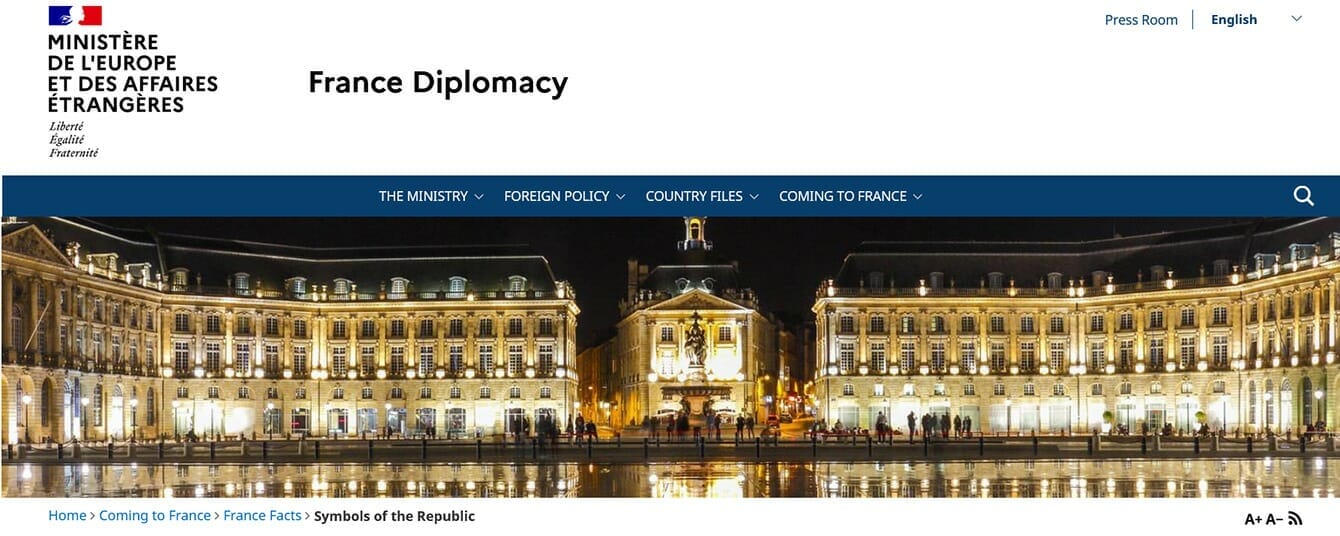Professor Noam Chomsky, the renowned linguist and public intellectual, in his 20-minutes of remarks at the launch of FORSEA in Kuala Lumpur three years ago, offered a sobering overview of the history of what we call democratic struggles.
It is also useful to remember that democracy has always been a highly contested concept. It’s been feared and disdained among elites throughout the period of democratic revival in the world. That’s been true, strikingly, in the great democratic revolutions. The first of these was in England in the mid-17th century, leading finally to what’s called the Glorious Revolution of 1688

The basic principles that the French Republic must respect are found in the 1789 Declaration of the Rights of Man and of the Citizen. Wikipedia Commons
Building on that critical take on the struggles for democracy from below, this week’s distinguished guest on our Dialogue on Democratic Struggles Series, Professor Marie Gren of the Pantheon-Sorbonne University in Paris, offered a feminist critique of the great democratic uprisings of 1789 – the French Revolution – which smashed the ancient feudal regime’s stranglehold of power and wealth.
She held up the example of Marie Gouze (1748-93) who dared to offered “Olympe de Gouges, The Declaration of the Rights of Woman“ (September 1791), in addition to or in place of the Declaration of the Right of Man. For her courageous display of gender equality she was condemned as a counterrevolutionary, denounced as an “unnatural” woman and was beheaded under the guillotine in 1793.
So much for the Legacy of the (French) Enlightenment – and its revolutionary slogans of “Liberté, Egalité, Fraternité”.
Professor Marie Gren, public and constitutional law scholar at the Pantheon-Sorbonne, focused her analysis of France’s democratic struggle in the post-World War II period. She used the 7 important years as signifiers of important changes to the French democratic system, particularly state organs:
1958 : a new constitution pushed through by (General) Charles De Gaulle during the Algerian crisis designed to skewer the system of checks and balances in his favour as the President vis-à-vis the legislature;
1962, the introduction of the US-style direct election of the president in the French referendum;
1971, the creation of a bill of rights by the Constitutional Council;
1981; the election of the leftist Francois Mitterrand into Presidency who chose not to change the DeGaullian system with tremendous power to the Executive although he attacked the very system prior to his election;
2000: the change of the presidential term from 7 to 5 years falsely framed as “more democratic but the actual outcome is more concentration of power in the hands of the President” as it created the overlapping election cycles for both presidency and legislature (National Assembly), favouring the presidential race winner and his – yes, only HIS – party;
2002: The far-right National Front reached the run-off in the presidential elections (established in the 1970’s but, with ties to an older fascist movement: https://fr.wikipedia.org/wiki/Rassemblement_national#R%C3%B4le_fondateur_d’Ordre_nouveau); and
2017/2022: the rise-and-rise of Marine Le Pen, the daughter of the former Far Right leader, whose prospects for capturing the presidency appears have significantly increased, with no real rival in French politics post-Macron, the second and last term President.
In the fascinating 60-minutes discussion, Professor Gren touched on various aspects of contemporary democracy in France, ranging from the sordid state of the Left and its “caviar socialists” and the increasing acceptability and mainstreaming of Far Right ideologies which Le Pen personifies to the economic hardships that inflict immense pains on the great majority of the French public, the popular rage and unpopularity of the incumbent President Macron, and the resultant and amorphous Yellow Vest protests that rocked France for months during the latter years of Macron’s first term.
Chillingly, despite the re-election victory by Macron, there are the French politicians who are even more to the right of Le Pen, which makes the 58-year French nationalist leader of the National Gathering party (renamed from the National Front) looks “moderate.”
Quoting the leftist presidential candidate Jean-Luc Mélenchon who came 3rd after Macron and Le Pen, the French scholar characterized “Le Pen as the politics of Macron with the racist approach and Macron, the politics of Le Pen with the classist approach.”
She also addressed the complexities of what is considered “the French identity” in the face of the growing presence of French Muslims with immigrant backgrounds, who make up Europe’s largest concentration of Muslims.
While the FORSEA guest said she shares the egalitarian values and ecological sensitivities of the socialist party candidate and Paris Mayor Anne Hidalgo, Professor Gren is very critical of the ecologically driven policy approaches of the left candidates which force the great majority of working class French people to choose the Environment over their day-to-day economic survival.
Maung Zarni
More background reading –
Even Before France Votes, the French Right Is a Big Winner
“The dominance of right-wing ideas in France’s presidential election campaign follows years of cultural wars waged successfully by conservatives on television, in social media and in think tanks.”
By Norimitsu Onishi and Constant Méheut
April 7, 2022
The Far Right Is Here to Stay
And other lessons from the European Parliament elections
“Now, there is no choice but to admit that the populist far right is becoming a permanent feature of European politics.”
By Ivan Krastev
May 28, 2019


